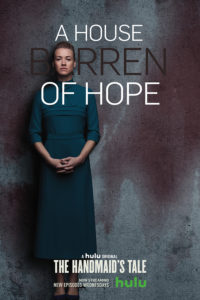 This post includes spoilers for “A Woman’s Place” (Season 1, Episode 6) of The Handmaid’s Tale. As usual, the link on the left has full summaries of all of the episodes that have aired so far.
This post includes spoilers for “A Woman’s Place” (Season 1, Episode 6) of The Handmaid’s Tale. As usual, the link on the left has full summaries of all of the episodes that have aired so far.
This post is going to be divided into two sections to discuss what went on with Serena Joy and Offred in episode 6. Both of these characters had a lot going on with them this week, so let’s dive in!
Serena Joy
As I’ve mentioned in previous posts about this series, Serena Joy has been an extremely difficult character for me to like. She has brief moments where she is bearable while she’s painting pictures or working in her garden, but the way she’s treated Offred so far has been unconscionable.
They are both women who are trapped in a violent, misogynistic world that values them only for the children they will either bear or be given to raise. No other part of them matters in any way. Up until this point, I’ve been assuming that Serena at least had a good reason to be so callous and cruel.
It was interesting, then, to have so many flashbacks of what Serena’s life was like before Gilead rose to power. We saw many glimpses of a happy, equal marriage between her and the Commander. Their home was filled with sunshine and joy. No one harmed them back then. If there were any skeletons in their closets, we saw no evidence of them at all.
This was a surprise to me because the current marriage between the Commander and Serena exists in name only. There haven’t been any moments of love, intimacy, or tenderness between these characters whatsoever in the present day. They fulfill their religious and social duties, but they might as well be colleagues or roommates when you look at how they speak to and interact with one another.
One of the other things we learned through this week’s flashbacks was that Serena was one of the people who helped to create Gilead. The stuff she wrote and said about gender roles, traditional marriage, and how society as a whole should operate were used as scaffolding for Gilead.
No sooner were her ideas accepted, though, than Serena Joy herself was rejected and sent back home. The men who listened so readily to her in the planning stages of the coup locked her out of the conversation as soon as they got things rolling.
The disappointed and stunned faces Serena made when all of this was playing out clearly showed that she’d been expecting to remain part of the inner circle. I found it hard to sympathize with her once I realized exactly how much work she’d put into creating the society that eventually trapped her.
This was the world she argued was the best possible one over and over again. Did she really expect to be given a pass to keep writing books and giving speeches once she’d helped to recreate such a harsh place? Why did she think she’d be treated any differently or any better than any of the other women in their society? How could she turn her head away from other people’s suffering for so long and then act shocked when her own suffering was quietly brushed under the rug as well?
All of the questions ran through my mind during the banquet that Serena Joy organized for the Mexican ambassador whose visit framed so many of the scenes this week. While the Commander was trying to figure out a way to set up trade with Mexico before Gilead’s economy collapsed, Serena figured out how to seal the deal given the small scraps of power she still possessed.
She did it with their most precious resource: the children the Handmaid’s had provided and created for them. A few dozen healthy, happy children caught everyone’s attention as soon as they were paraded in front of the attendees at a banquet that was thrown for the ambassador, the high-ranking members of Gilead, and any Handmaid who didn’t bear visible scars of the tortures they’ve endured so far.
If Handmaids could give Gilead children, Mexico might just be willing to buy them to bear children for their nation as well. This was one plot twist that I definitely didn’t see coming. It makes me shudder to think about how the Handmaid trade would work and how Gilead would make sure they had enough Handmaids for both personal use and to sell for a profit.
My best guess is that Gilead will begin either dramatically expanding the types of “crimes” that will turn a woman into a Handmaid or raiding nearby villages for freeborn women to capture and sell.
I hope we get more opportunities to explore Serena’s past in future episodes. While I don’t like her at all right now, these glimpses of her previous life have helped me to understand her coldness and lack of empathy a little bit.
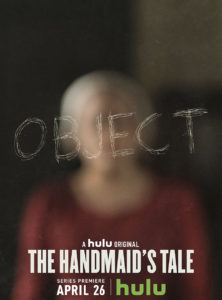 Offred
Offred
One of the things I disliked about Offred’s character in the book was how passive she was. Yes, she was no doubt horribly traumatized by the things she experienced. In no way am I trying to downplay how that can affect a person’s behaviour, but I always wished that she’d at least occasionally push back against her tormentors.
This week was a rewarding experience for me because of this part of her history. Our Offred is beginning to fight back in bigger ways than she ever has before.
Her first introduction to the Mexican ambassador was as stilted as you might expect. She answered all of the ambassador’s questions about what life was like as a Handmaid with diplomacy and pretty falsehoods. I desperately wanted these characters to meet again so that Offred could tell the truth about the severe sexual, emotional, and physical abuse that she’d experienced repeatedly over the past three years.
This was another point where the plot surprised me: the Mexican ambassador didn’t care about Offred’s suffering at all. Like Serena Joy, she was completely indifferent to other people’s pain. If institutionalized rape and torture was what it took for Mexico to begin having live births again, she was more than willing to sign other people up for that.
I spent so much time feeling confused and horrified by the ambassador’s indifference that it took me a second to realize her assistant didn’t agree with her at all. The message he passed on to Offred in the final scene made my heart skip a beat: Luke was still alive. If Offred wanted to, she could send him a message through the assistant.
Scenes like this make me glad I avoid as many spoilers for this show as I can. I never would have guessed this would happen, so it was wonderful to learn that Luke was safely out of the country at the same moment Offred did.
How did he avoid getting shot to death in the first scene of this series? Was he ever even shot? Who helped him get out of the country? Will they be reunited? What happened to their daughter?
I have so many questions and so few answers at this point. I love the fact that this show is pulling away from the book and forging its own path, though. Next week’s episode can’t come soon enough.
Previous posts in this series:
5 Things I Want from The Handmaid’s Tale
Introducing Offred’s World
Gender Treachery
Nolite Te Bastardes Carborundorum
Faithful
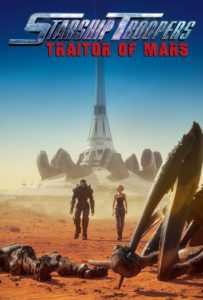
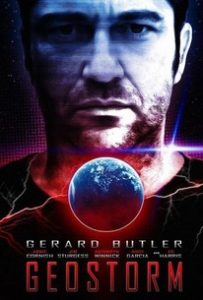
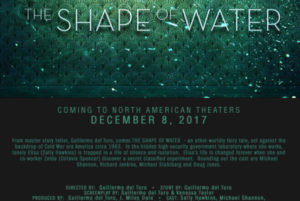
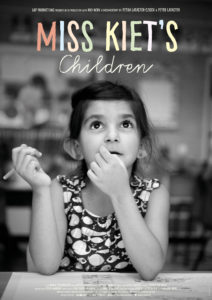


 Those of you who have been following me for years might remember my post from 2014 about
Those of you who have been following me for years might remember my post from 2014 about 
 This past weekend I tried to remember the first science fiction or fantasy book I ever read. After a lot of deliberation, I believe that traditional fairy tales were what originally drew me into this genre.
This past weekend I tried to remember the first science fiction or fantasy book I ever read. After a lot of deliberation, I believe that traditional fairy tales were what originally drew me into this genre. They Teach You Important Life Lessons
They Teach You Important Life Lessons Will the future be paradise or a post-apocalyptic hellhole?
Will the future be paradise or a post-apocalyptic hellhole?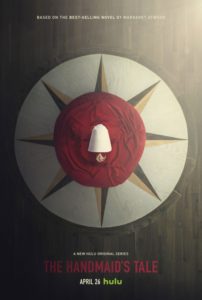 This post includes spoilers for “Night” (Season 1, Episode 10) of
This post includes spoilers for “Night” (Season 1, Episode 10) of  Today’s post will be shorter than usual because I don’t believe in stretching my ideas out to fit a predetermined word count. If I can say it in 700 words, I’m not going to give you a few thousand of them just to fit the pattern of many of my previous posts here. (I’m planning to talk more about why it’s so important to avoid padding out blog posts next week, so stay tuned!)
Today’s post will be shorter than usual because I don’t believe in stretching my ideas out to fit a predetermined word count. If I can say it in 700 words, I’m not going to give you a few thousand of them just to fit the pattern of many of my previous posts here. (I’m planning to talk more about why it’s so important to avoid padding out blog posts next week, so stay tuned!)
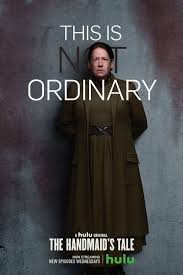 This post includes spoilers for “The Bridge” (Season 1, Episode 9) of
This post includes spoilers for “The Bridge” (Season 1, Episode 9) of 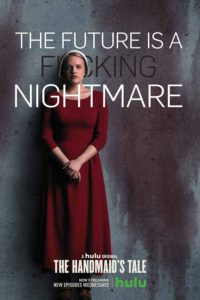 Offred
Offred This post includes spoilers for “The Other Side” (Season 1, Episode 7) of
This post includes spoilers for “The Other Side” (Season 1, Episode 7) of  This post includes spoilers for “A Woman’s Place” (Season 1, Episode 6) of
This post includes spoilers for “A Woman’s Place” (Season 1, Episode 6) of  Offred
Offred Speculative fiction is an umbrella term for everything from science fiction to dystopians, fantasy to horror.
Speculative fiction is an umbrella term for everything from science fiction to dystopians, fantasy to horror. There is something to be said for immersing yourself in a completely different world when you need a short break or could use some encouragement.
There is something to be said for immersing yourself in a completely different world when you need a short break or could use some encouragement.
 I have not decided yet if I have sympathy for Serena Joy (who is pictured on the right). The way she treated Offred was abusive and abysmal in this episode, but I’ve also seen the men in her life treat her terribly, too.
I have not decided yet if I have sympathy for Serena Joy (who is pictured on the right). The way she treated Offred was abusive and abysmal in this episode, but I’ve also seen the men in her life treat her terribly, too.